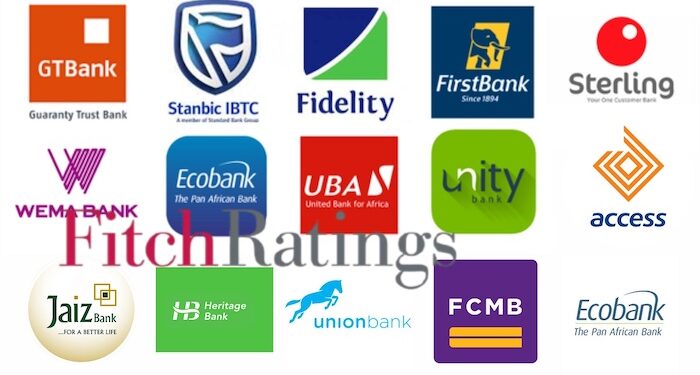Nigerian banks are making significant strides in raising core capital to meet the new capital requirements set by the Central Bank of Nigeria (CBN). According to a recent statement from global rating agency Fitch Ratings, banks are generally on track to meet the CBN’s deadline of March 2026, by which time they must comply with the new capital regulations.
Fitch highlighted that the ongoing recapitalisation efforts are vital in recovering from the effects of naira devaluation, providing fuel for growth, and reducing the likelihood of major banking sector consolidations. In March 2024, the CBN announced an increase in paid-in capital requirements, which apply to commercial, merchant, and non-interest banks. Banks have three options for compliance: equity injections, mergers and acquisitions, or downgrading their licence authorisation.
Notable progress has been made by several Fitch-rated banks. The two largest Nigerian banks, Access Holdings and Zenith Bank, were the first to raise enough capital to meet the N500 billion requirement for maintaining their international banking licences. Other key players, such as United Bank for Africa (UBA) and Guaranty Trust Holding Company (GTCO), are taking a phased approach. Both banks have raised capital recently and are awaiting final regulatory approval for further capital increases to meet the new requirements.
Fidelity Bank and FCMB Group have completed initial capital raising, though they will need to secure more funding to maintain their international licences. These second-tier banks are required to raise more capital relative to their balance sheets than larger banks. However, both banks have received approval for additional capital raising and could consider downgrading their licences to national status if necessary.
Fitch further revealed that Ecobank Nigeria and Jaiz Bank had successfully met their new capital requirements with smaller capital injections. Ecobank, however, is still working to meet its total capital adequacy ratio (CAR) requirement of 10%, with plans for further capital raising.
Stanbic IBTC Holdings has also initiated a rights issue to raise the capital needed to retain its national licence, and strong investor interest has ensured the success of most capital raising efforts thus far. This positive investor response means that many first- and second-tier banks should meet the new capital requirements through equity raising alone. As a result, the likelihood of major banking sector consolidation is significantly reduced.
However, Union Bank of Nigeria (UBN), which is currently in breach of its 10% CAR requirement, along with some third-tier banks, has been slower to raise the required capital. Wema Bank is planning a capital raise in April 2025, and Coronation Merchant Bank has recently received board approval for the same. The future of smaller third-tier banks could be shaped by mergers, acquisitions, or downgrading of their licences.
Overall, the capital raising efforts are contributing to a recovery in bank capitalisation, particularly after the devaluation of the naira. This increased capital buffer is essential to mitigate risks posed by Nigeria’s volatile operating environment, including potential regulatory intervention and continued naira fluctuations. While these moves may not lead to upgrades for banks with a ‘B-’ Long-Term Issuer Default Rating (IDR), they may result in positive Outlook revisions and upgrades for certain banks, provided capital adequacy ratios are restored.


